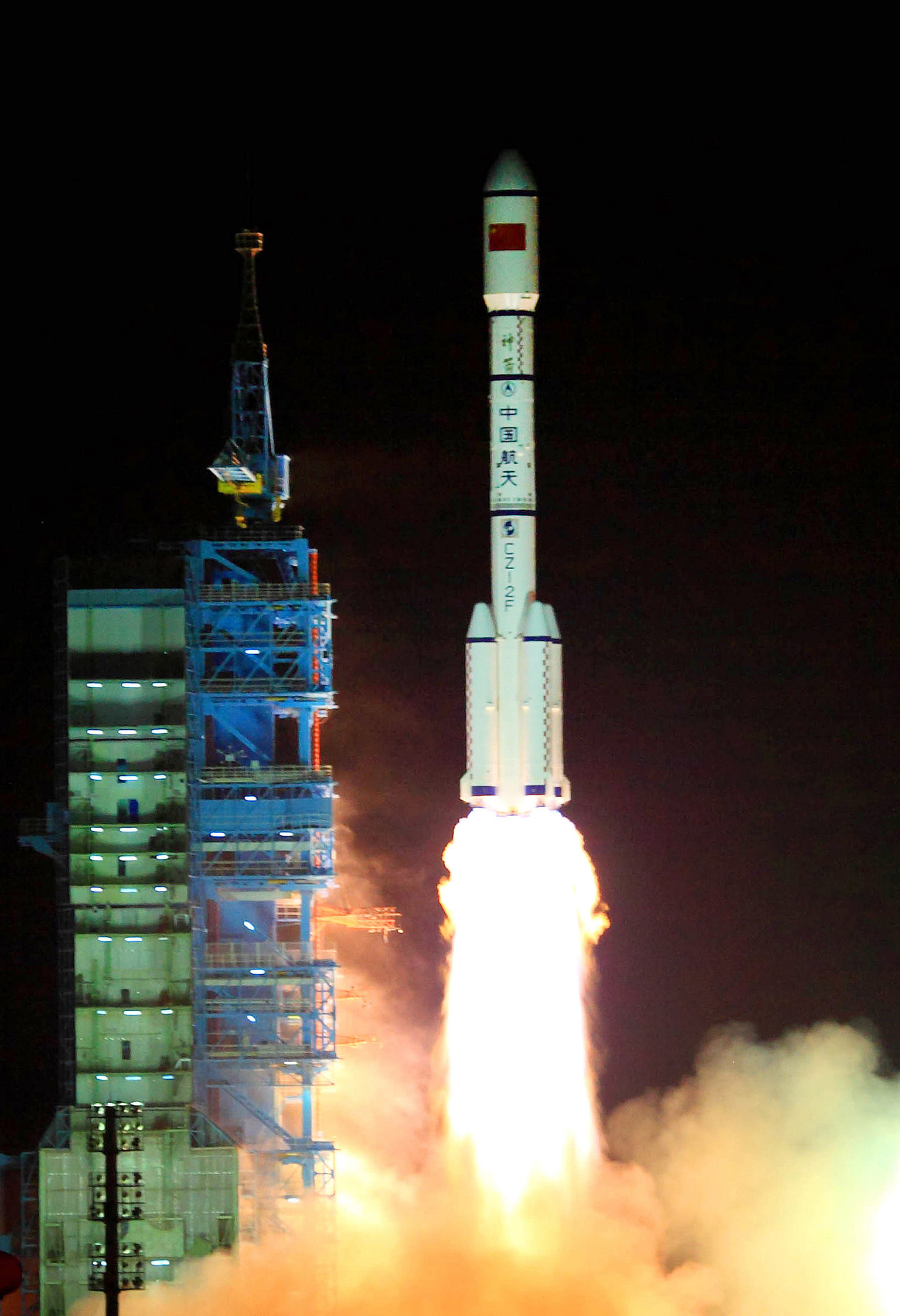BEIJING • An out-of-control space laboratory that will plunge back to Earth in the coming days is unlikely to cause any damage, the Chinese authorities said, but will instead offer a "splendid" show akin to a meteor shower.
China's space agency said on Thursday that the nearly eight-tonne Tiangong-1 will re-enter the atmosphere some time between today and Monday. The European Space Agency (ESA) gave a smaller window - between midday today and early tomorrow afternoon, GMT time.
There is "no need for people to worry", the China Manned Space Engineering Office (CMSEO) said on its WeChat social media account. Such falling spacecraft do "not crash into the Earth fiercely like in sci-fi movies, but turn into a splendid (meteor shower) and move across the beautiful starry sky as they race towards the Earth", it said.
The lab was placed in orbit in September 2011 and had been slated for a controlled re-entry, but it ceased functioning in March 2016, and space enthusiasts have been bracing themselves for its fiery return.
China sees its multibillion-dollar space programme as a symbol of the country's rise. It plans to send a manned mission to the Moon in the future. China sent another lab, the Tiangong-2, into orbit in September 2016, and hopes to turn it into a crewed space station by 2022.
Experts have downplayed concerns about the Tiangong-1 causing any damage when it hurtles back to Earth, with the ESA noting that nearly 6,000 uncontrolled re-entries of large ob

jects have occurred over the past 60 years without harming anyone.
The CMSEO said the probability of someone being hit by a meteorite of over 200g is one in 700 million.
During the uncontrolled re-entry, atmospheric drag will rip away solar arrays, antennas and other external components at an altitude of around 100km, according to the Chinese space office. The intensifying heat and friction will cause the main structure to burn or blow up, and it should disintegrate at an altitude of around 80km, it said.
Most fragments will dissipate in the air, and a small amount of debris will fall relatively slowly before landing, most likely in the ocean, which covers more than 70 per cent of the Earth's surface.
Dr Jonathan McDowell, an astronomer at the Harvard-Smithsonian Centre for Astrophysics, said: "Much bigger things have come down with no casualties. This thing is like a small plane crash."
The descending spacecraft left a streak across Malaysian skies for 81 seconds from 3.19am early yesterday. It was estimated that the altitude of Tiangong-1 dropped from 182.462km to 182.407km during the duration, according to the re-entry forecast issued by Malaysia's national space agency, Angkasa.
AGENCE FRANCE-PRESSE
